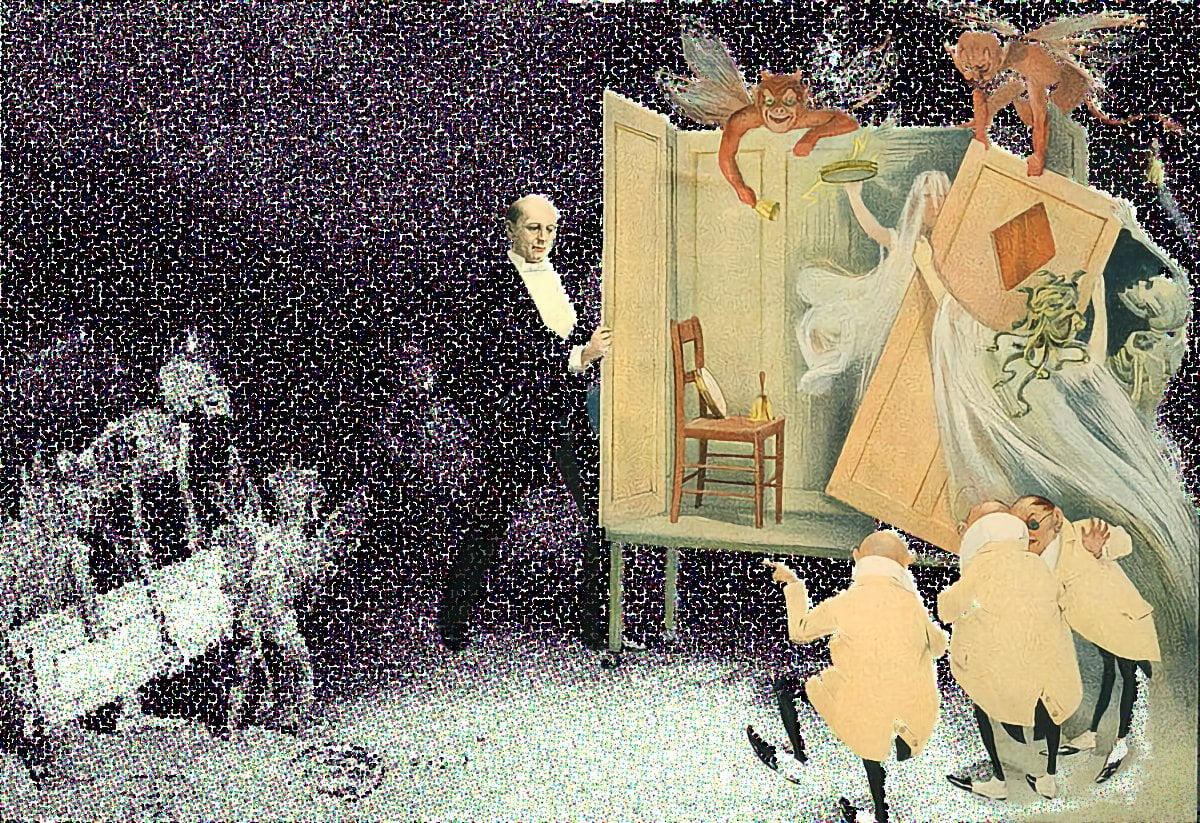
This post was originally intended for the actual friends I share on Facebook, not necessarily the ‘added friends’ who I don’t know in real life. Over the decades, I’ve made many worldwide acquaintances; sadly, my only link to some is as a Facebook connection. This screed is about deleting my Facebook account, which means forever severing connections with some people I’ve had the pleasure of knowing. This is not a happy post.
I dislike writing these things. I’ve written about this topic before—”fool me once”—and I hope this is the last time. Before disappearing, I could have put this in a Facebook post, but I know the algorithms there will prevent my connections from seeing it. To Facebook (Meta), free speech is a grift. Any dissent is throttled to obscurity. I thought I’d be better off linking to a blog post, though I know the algorithm hates links, too. I’m banking on it hating dissent even more than the link post that possibly sent you here.
The worst thing about these posts is I fear I sound self-righteous and smug. I also know that I’m privileged even to consider quitting Facebook—for some of you, the platform is a sole lifeline to family members or mandatory for your job. I get it. I don’t mean anything here as judgment. If anything, and like most posts on this blog, I’m working through some stuff and trying to figure out where I stand. I write to think, not the other way around, and I only hope some find these ramblings useful.
❋-❋-❋-❋-❋-❋-❋-❋
In a new piece on Brian Eno in The Guardian, Bette Adriaanse, Brian’s collaborator on the book What Art Does, says, “We’d just met and he said, ‘If we want a new world, we have to start making it right now, and whatever we are doing, we have to make it as though we are in that new world.’ And that just kept singing in my brain.”
I’ve written about a version of this quote that Brian likes bandying about and how it sings in my brain, too. However, Bette’s twist on it suits the present moment with an uncannily tight fit. “We have to start making it right now, and whatever we are doing, we have to make it as though we are in that new world.” The alarm is a piercing scream: we have to start RIGHT NOW. Terrible people rule the discourse, and our best protection against this psychic barrage is to act, within our daily lives, as if we’re reaching toward the world we want.
For me, that’s a world free of cruelty and suffering and without the proliferation of injustice that goes hand-in-hand with those things. Increasingly over the past decade—after many failed battles with what can most charitably be described as ‘bad vibes’—I’ve learned to work harder to base decisions on this metric. It influences what and how I eat, the information I ingest, where I shop, and how I treat or think of others. I’m not great at it, but I’m always aware and trying. And part of this is admitting I’ll always fail. For example, Orlando is a city where you can’t quite live without a car (I’ve tried), and you’ve got to get gas for that car. I’m unaware of any automobile or oil companies that aren’t on the spectrum of doing evil deeds to maximize profit.
Still, there are areas of our lives where we can refuse to participate with companies whose cruelty outweighs any benefits. I do my best to identify these and act accordingly. These are small efforts in a big world, but they make me feel better—I’m working on my new world. And then there’s the contagion factor, where perhaps I can inspire someone else to think twice about eating meat or frequenting sites that traffic in clickbait ‘outrage of the day.’ But, primarily, I’m working on myself. I want to be a better human, and, among other things, that means denying terrible people of my attention and engagement.
❋-❋-❋-❋-❋-❋-❋-❋
Sometimes, I’ll tell people I’m still a punk rock kid, and part of that is my distrust (I’m being charitable again) of large corporations. I grew up in one of those tiny towns that got swallowed up by Walmart. I also spent my teenage years shouting along to songs like the Minutemen’s “Shit From an Old Notebook” and “The Product.” Never trust a corporation. And suddenly, here comes Facebook (Meta), one of the biggest corporations ever, swallowing us up omnivorously as if we’re those tiny towns of the late ’80s.
Like many of you, I’ve kept a Facebook account for a simple reason: I have friends there, and Facebook is how those friends keep in touch. However, time is a flat circle, and I’ve debated the existence of that account before. There’s been this, and this, and this, and it was obvious a while ago that Facebook was not working toward making the world a better place. I decided I wouldn’t engage on Facebook; I only occasionally posted what I was up to (mainly links to my online writing and podcast work) and maintained ‘business’ pages like the one for the online magazine The Tonearm. That felt like the minimum I could do, but it also often felt too much.
I kept floating along because I was already engaging with other untrustworthy corporations—for starters, the desktop computer I’m typing this on, the cell phone plan I have, and the health insurance I require. Perhaps I’m justifying. But the cruelty and suffering that will dramatically increase over the next four years is an awful reality. If I can disengage with any organization kowtowing to the terrible people fueling this misery, then sooner is the preferred alternative to later.
Meta groveled at an impressive, alarming, and unsurprising speed. I won’t go into it here, but Casey Newton has a comprehensive and disturbing round-up of the depths of Meta’s servile prostration—so far!—in his Platformer newsletter. (If you click on only one link to read from this too-long blog post, please make it that one.) Cruelty (in this case, under the gaslit guise of ‘free speech,‘ but without the accountability that exercising that speech entails in the normal world) is now embedded as Facebook policy, and suffering is sure to follow. It’s terrible people all the way down, and I can’t take it anymore. I’m out.
❋-❋-❋-❋-❋-❋-❋-❋
I’m thankful that Lawrence, my partner in The Tonearm, agrees. The online magazine’s social media distribution includes Facebook, Instagram, and Threads. Those pages are linked to my Facebook account, so if I go, they go. Lawrence, as disgusted by all of this as I am, wholeheartedly supports my decision to the degree that it’s become ‘our’ decision.
The Tonearm’s online profile might diminish, but that’s favorable to compromising our principles. That said, I’d love for you to support us in this decision by subscribing to The Tonearm’s email newsletter. That newsletter will be our main outreach point outside the site. Our Mastodon and Bluesky accounts will also continue to churn out fun posts.
I’d also like to keep in touch with you. Whether you’re an old or new friend, it stinks that Facebook might be our only connection to each other, and now I’m pulling the plug. By all means, please email me, even if just a quick “hello, here’s my contact info” message. I’m also goofing around on Mastodon and Bluesky if that’s your thing. (As Mastodon is a fully decentralized system that can’t get taken over by terrible people, I encourage you to explore that one further.)
Our continued friendship should not rely on a corporate platform mandated by the power-mad aspirations of terrible people. Please reach out.
❋-❋-❋-❋-❋-❋-❋-❋
One final zinger: The terrible person in charge of Meta says that people like me are ‘virtue-signaling.’ Maybe you agree. If ‘virtue-signaling’ is publicly exercising a personal moral code by leaving a platform that allows (and algorithmically encourages) the dehumanization of oppressed people, then I suppose that’s what I’m doing. I imagine the opposite of that is flaunting a watch that costs $900,000. I know which one’s celebrated in the world I want to live in.






